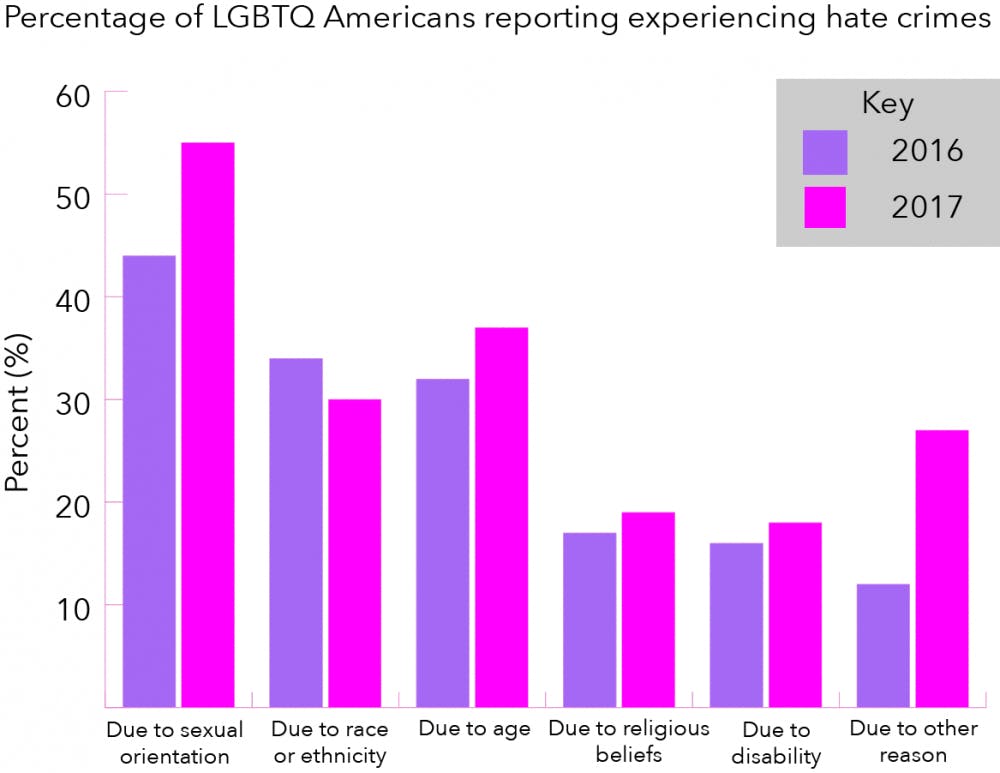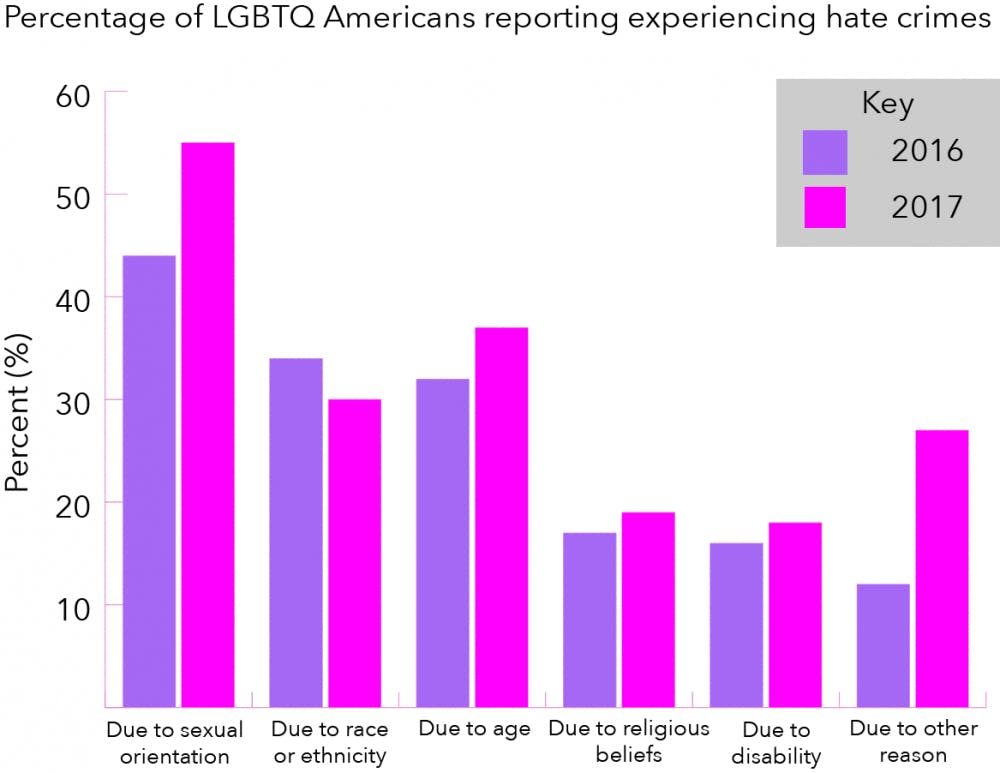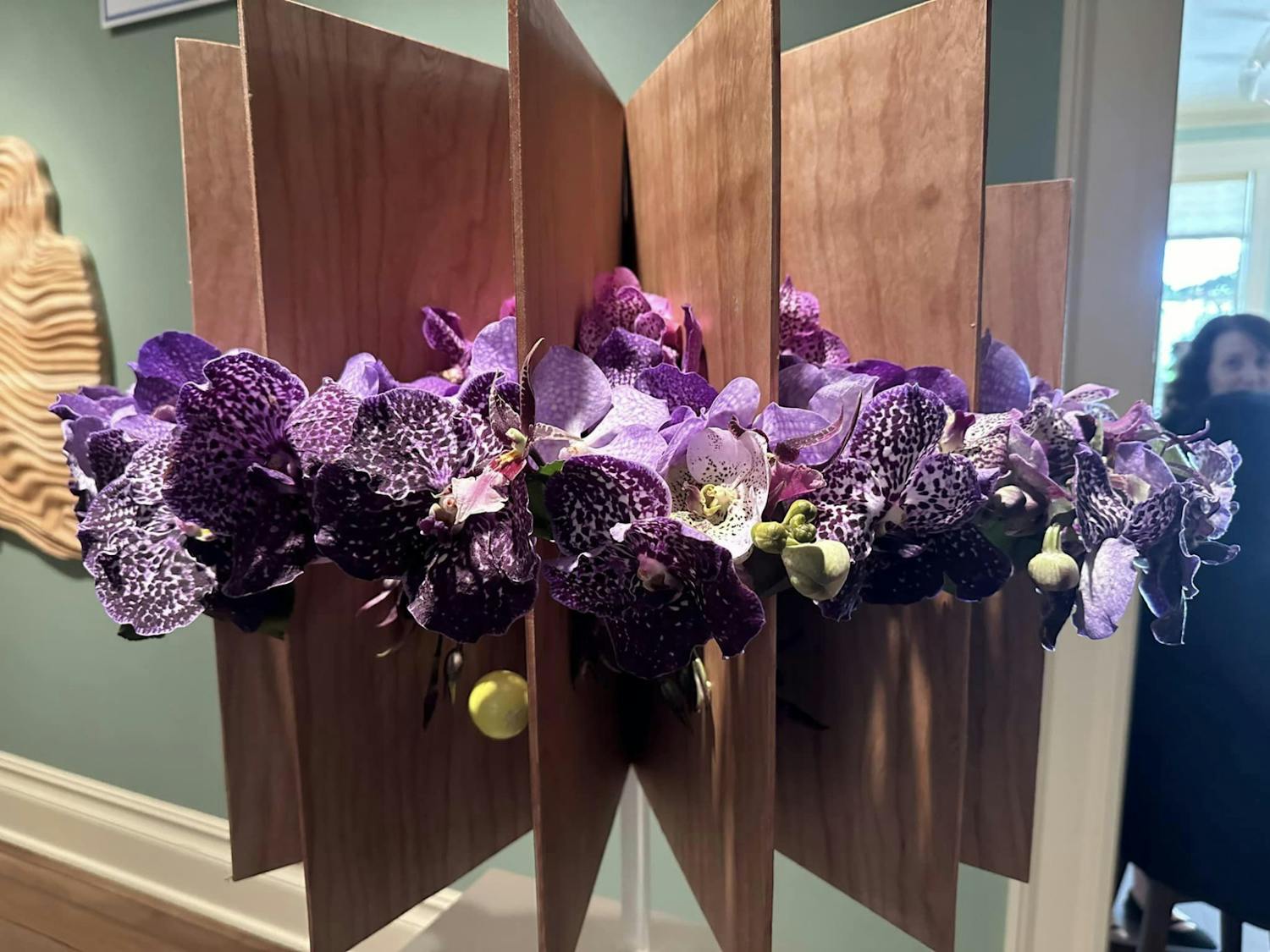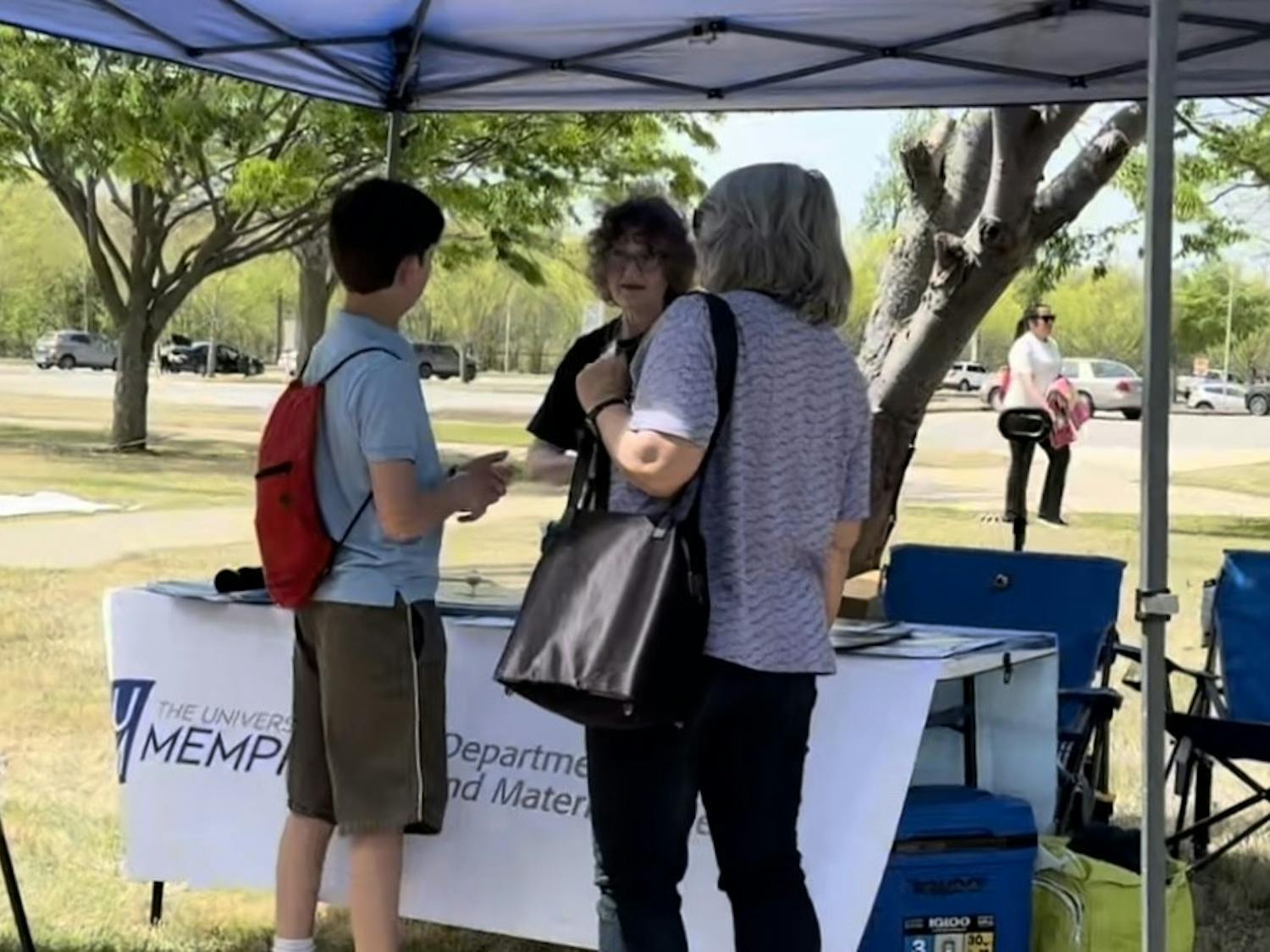
More LGBTQ Americans reported being discriminated against in 2017 than 2016, according to research done by GLAAD. Other research done by the organization show acceptance for gender and sexual minorities in social situations dropped this past year despite growing in previous years.
Despite the gains for gender and sexual minorities in the past few years, many Americans still do not feel comfortable around them.
GLAAD, a media monitoring organization founded by LGBQ people in the media, found people’s intolerance of LGBTQ people in social situations has started growing after it had been declining for the previous two years, according to the organization’s Accelerating Acceptance 2018 study conducted by The Harris Poll.Â
For example, 30 percent of those surveyed in 2014 were somewhat or very uncomfortable with the idea of their child being placed in a class with an LGBTQ teacher. The uncomfortable percentage dropped to a low of 28 percent in 2016 before increasing to a high of 31 percent last year.
“I saw a tweet from a guy saying he would kill his son if he found out he was gay, and it doesn’t surprise me when I hear not the same exact words, but the same level of hatred coming from my own father when we’re just sitting watching a movie and a gay character comes on screen,†Justin Lenton, an LGBTQ student who attends the University of Tennessee at Knoxville, said.
More gender and sexual minorities in the United States reported being discriminated against in 2017 than in 2016, according to the GLAAD study. In 2016, 44 percent of those surveyed said they were being discriminated against based on sexual orientation or gender identity, but the number increased to 55 percent in 2017.
Lenton said while the recent uptick in hate crimes has affected all gender and sexual minorities, a bigger toll has been placed on community members of color.
“Our intersectional identities make it difficult because we are having to fight for so much at the same time,†Lenton said.
Lenton said he thinks more media images of people from marginalized communities would help shift people’s perceptions of them.
“It would be nice to see more LGBTQ people as main characters and not the best friend — LGBTQ characters that have dynamics and a storyline,†Lenton said.Â
Lenton said he was excited for the movie “Love Simon†which was released March 16 but “every gay character is white.â€
“So I’m still waiting on queers of color to have their platform,†Lenton said.
Kevin Baugh, founder of the LGBTQ Veterans Alliance, a support group for LGBTQ veterans that meets every third Tuesday at OUTMemphis, said because Republicans are gaining power across the nation, they can pass laws against the gender and sexual minorities as well as have a broader platform to spread their views.
“Right now we have a government that is pro-religion, pro-hatred and pro-heteronormativity,†Baugh said. “I do know though that there are several LGBTQIA+ people who have faced violence, hatred and bigotry recently, more so than in recent years.â€
Baugh said he thinks the reason the tides have shifted in the acceptance of the LGBTQ community is because President Donald Trump has made it more acceptable.
“People are feeling more emboldened and that there are less consequences for their beliefs than they did in the past under President Obama,†Baugh said.
Last year, Trump tried to ban transgender people from serving in the U.S. military. Baugh said the president used this ban to distract people from his problems, and some people do not accept transgender people because they do not understand them.
“They think a guy woke up this morning and said, ‘You know what, now I’m a woman,’ and (believe) that they are using taxpayer dollars, in respect to the military ban, to have operations on a whim,†Baugh said.
Baugh said if people had discovered his sexuality while he served in the army, it could have been fatal for him.
“Instead of turning me in, they could beat me to death, and no one would really bat an eye,†Baugh said. “I take that feeling, that experience, and put it towards the trans community, who already operate in that realm daily. I just wanted to serve my country and uphold a family tradition. Some of them simply want to do the same.â€
Jacob Rodgers, a gay student at the University of Memphis, said he thinks supporting gender and sexual minorities is seen as “trendy,†and acceptance of them dropped off when transgender people gained visibility.
“I am unsurprised by the decline of support because I don’t really think people supported us or championed our cause so much as tolerated and commodified our community to win points with friends,†Rodgers said.
Dalton Schultz, another gay student at the U of M, said he thinks the country’s leadership is the reason acceptance for gender and sexual minorities has fallen.
“Progress for the LGBTQ community isn’t made with religious freedom bills, proposed cuts to HIV and AIDS testing programs or attacks on the trans members of our military,†Schultz said. “Hate is instilled, and that’s exactly what is happening within our country.â€
In April 2016, the Tennessee State Legislature passed House Joint Resolution 529, and it became law without Gov. Bill Haslam’s signature. The resolution expressed the members’ disagreement with the Supreme Court’s decision in Obergefell v. Hodges, which gave same-sex couples the right to marry.
The Tennessee Equality Project (TEP), an organization in Tennessee founded in 2004 that fights against LGBTQ discrimination in the Tennessee General Assembly, works toward the acceptance of gender and sexual minorities on many levels.
Chris Sanders, executive director of the TEP, said when bills that are discriminatory to LGBTQ people pass, they encourage other people to view them as “less than.â€
TEP also works toward LGBTQ acceptance through a program called “Tennessee Open for Business.†This program highlights companies known to not discriminate against their employees or customers based on sexual orientation or gender identity.
“It’s a way of celebrating inclusive spaces,†Sanders said.
TEP tries to engage the media in Tennessee to increase visibility, but Sanders said he thinks it is an uphill battle in a reliably Republican part of the country.
“I will admit that it is hard to move the needle on acceptance in a socially conservative state and at a time when negative messages are coming out of the White House,†Sanders said.




